Recent Blog Posts
Choosing Between a Chapter 7 or Chapter 13 Bankruptcy
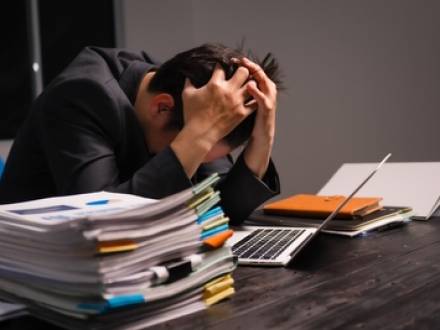 For the average person, Chapter 7 and Chapter 13 are the most likely bankruptcy options when looking for debt relief. As you navigate your choices, knowing about the pros and cons of both will help you make an informed decision about your financial future. If you have questions or concerns, a Prince George’s County, MD bankruptcy attorney can offer advice rooted in experience.
For the average person, Chapter 7 and Chapter 13 are the most likely bankruptcy options when looking for debt relief. As you navigate your choices, knowing about the pros and cons of both will help you make an informed decision about your financial future. If you have questions or concerns, a Prince George’s County, MD bankruptcy attorney can offer advice rooted in experience.
Definitions of Chapter 7 and Chapter 13 Bankruptcy
Chapter 7 bankruptcy is commonly called liquidation bankruptcy because it allows you to give up property to pay debts while protecting certain assets. For example, some Chapter 7 exemptions include qualified retirement plans and social security benefits. People often wonder if they can keep their home, and in many cases, they can. Exemptions typically include protections for home equity.
Chapter 13 bankruptcy is more of a plan designed to help you pay off your debts in smaller amounts. The terms include an end date, and when it concludes, the debt that remains is wiped away.
When Is Chapter 7 Bankruptcy a Good Idea For Senior Citizens?
 Sometimes life throws you curveballs, and even the most well-intentioned plans can be sidetracked. If you are a senior citizen, you may be facing significant debt and financial difficulties at a time when you likely envisioned yourself retiring. You may even be contemplating bankruptcy.
Sometimes life throws you curveballs, and even the most well-intentioned plans can be sidetracked. If you are a senior citizen, you may be facing significant debt and financial difficulties at a time when you likely envisioned yourself retiring. You may even be contemplating bankruptcy.
Yet it is not all bad news. First of all, it is common to face serious financial difficulties later in life due to unexpected events like an illness. Most importantly, in some cases, Chapter 7 bankruptcy can actually provide significant benefits to senior citizens. An experienced Greenbelt, MD bankruptcy attorney can advise you if bankruptcy is right for you,
When Might Bankruptcy Be a Good Option for Seniors?
To determine whether filing for bankruptcy is the right option for you, you should consider your current financial situation, primarily the types of debts and assets that you have:
Four Bankruptcy Myths Debunked
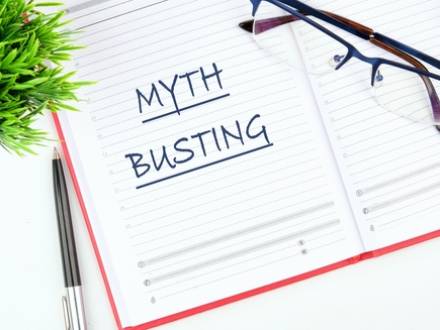 Sometimes, individuals who might benefit from the bankruptcy process put off filing for bankruptcy due to concerns that it might ruin their credit or that filing for bankruptcy is equivalent to admitting personal and financial failure. This is understandable, but the reality is that bankruptcy can actually be a solid way to get your finances in order and move forward with a clean slate.
Sometimes, individuals who might benefit from the bankruptcy process put off filing for bankruptcy due to concerns that it might ruin their credit or that filing for bankruptcy is equivalent to admitting personal and financial failure. This is understandable, but the reality is that bankruptcy can actually be a solid way to get your finances in order and move forward with a clean slate.
Learning more about how bankruptcy really works and how it could affect you can provide certainty and peace of mind about the process. An experienced Maryland bankruptcy attorney can advise you on the myths surrounding bankruptcy, debunk these myths, and let you know whether bankruptcy is right for you.
Myth 1: You Will Lose Your Home in Bankruptcy
Bankruptcy does not have to mean that you will lose your home. In Chapter 7 bankruptcy, certain assets are exempt from the bankruptcy estate, meaning that you can keep these assets. Maryland has a homestead exemption for bankruptcy of $27,900 in 2025, meaning that the exemption protects up to this amount of equity in your primary residence from becoming part of the bankruptcy estate. In addition, exemption amounts for other types of property can be added to this amount.
Should You Get a Loan Modification?
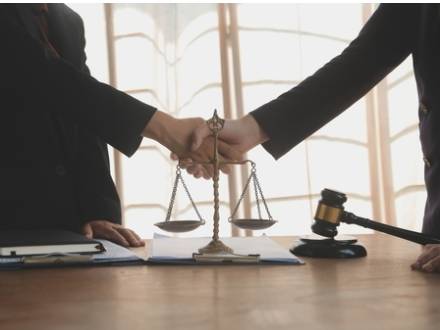 It is stressful to face the potential foreclosure of your home. Yet there are practical solutions to avoid foreclosure. Even before thinking about a more significant step like filing for bankruptcy, one way to avoid foreclosure is by negotiating a loan modification with the bank.
It is stressful to face the potential foreclosure of your home. Yet there are practical solutions to avoid foreclosure. Even before thinking about a more significant step like filing for bankruptcy, one way to avoid foreclosure is by negotiating a loan modification with the bank.
Foreclosures are inconvenient and expensive for banks, which is why banks sometimes have an incentive to negotiate a financial solution that works for you to repay your loan. An experienced Greenbelt, MD foreclosure defense attorney can assist you with your loan modification.
What Is Mortgage Loan Modification?
A loan modification is a long-term mortgage relief option for borrowers. It is an opportunity to renegotiate the terms of their mortgage loan to make the payments more manageable. A loan modification lowers monthly payments by reducing the interest rate, reducing the principal balance, or changing the loan term. If approved by the lender, a loan modification is a good way to avoid foreclosure.
Reaffirmation Agreements in Chapter 7 Bankruptcy
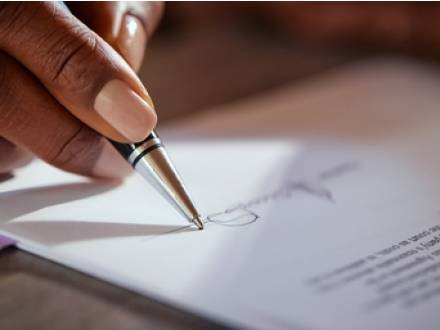 If you have filed for Chapter 7 bankruptcy, your nonexempt assets will be liquidated during the bankruptcy. But what if you wish to keep a certain asset even though it would normally be liquidated as part of the bankruptcy estate? In certain cases you may be able to do so by entering into a reaffirmation agreement with your creditor. In fact, sometimes a lender will ask you to sign a reaffirmation agreement. An experienced Maryland bankruptcy attorney can advise you on whether a reaffirmation agreement is the right option for you.
If you have filed for Chapter 7 bankruptcy, your nonexempt assets will be liquidated during the bankruptcy. But what if you wish to keep a certain asset even though it would normally be liquidated as part of the bankruptcy estate? In certain cases you may be able to do so by entering into a reaffirmation agreement with your creditor. In fact, sometimes a lender will ask you to sign a reaffirmation agreement. An experienced Maryland bankruptcy attorney can advise you on whether a reaffirmation agreement is the right option for you.
What Is a Reaffirmation Agreement and Why Sign It?
A reaffirmation agreement is a contract between you and a creditor entered into during Chapter 7 bankruptcy in which you agree to keep a certain asset out of bankruptcy by affirming the obligation to pay. Practically speaking, the asset will not be liquidated in bankruptcy and the debt will not be discharged. You will continue paying the debt and remain liable for the unpaid balance.
What to Know About Maryland Deficiency Judgements
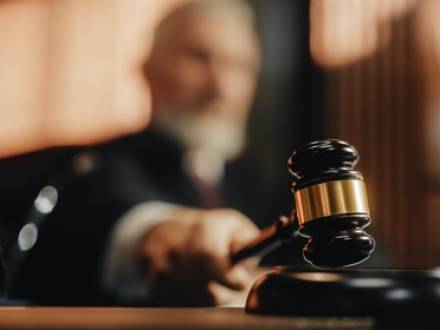 Sometimes, even after a lender has foreclosed on your property in Maryland, you may still owe them money if the price at which the property was sold was insufficient to cover the debt. The difference between the selling price and what you owe the bank is called a deficiency, and the legal process the lender initiates to obtain that remaining amount grants the lender something called a "deficiency judgment." An experienced Maryland foreclosure attorney can advise you on the law of Maryland deficiency judgments.
Sometimes, even after a lender has foreclosed on your property in Maryland, you may still owe them money if the price at which the property was sold was insufficient to cover the debt. The difference between the selling price and what you owe the bank is called a deficiency, and the legal process the lender initiates to obtain that remaining amount grants the lender something called a "deficiency judgment." An experienced Maryland foreclosure attorney can advise you on the law of Maryland deficiency judgments.
How Do Maryland Foreclosure Deficiency Judgments Operate?
Say you owe the lender $100,000, but the property is sold for $70,000 at foreclosure. You will still owe the lender $30,000 to make up the difference. Maryland law allows a lender to file a motion for a deficiency judgment to recover this remaining debt.
Can You Get Relief from Medical Debt Through Bankruptcy?
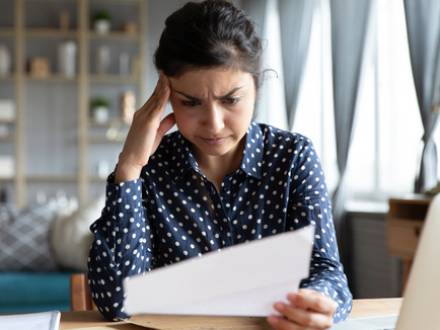 The cost of healthcare is a major concern for most Americans. Although many believe bankruptcy is primarily caused by frivolous credit card spending, healthcare costs are now the number one cause of bankruptcy for American families. More than 56 million people across the United States struggle to pay medical debt, with almost nine percent of these unable to pay anything toward their medical bills.
The cost of healthcare is a major concern for most Americans. Although many believe bankruptcy is primarily caused by frivolous credit card spending, healthcare costs are now the number one cause of bankruptcy for American families. More than 56 million people across the United States struggle to pay medical debt, with almost nine percent of these unable to pay anything toward their medical bills.
Eleven million people used high-interest credit cards to pay their medical debt, but they eventually became unable to pay the credit card debt. Perhaps the most dismaying statistic is that 90 percent of those with homes took out a second mortgage to pay their medical debt. Further, the 56 million people with significant medical debt are not extremely poor—they are middle-class college graduates who are also homeowners.
How bankruptcy could lead to a better childhood for your kids
 Parents struggling with financial difficulties often feel overwhelmed by the pressure to pay bills while providing for their children. When debt piles up, it can affect every aspect of family life.
Parents struggling with financial difficulties often feel overwhelmed by the pressure to pay bills while providing for their children. When debt piles up, it can affect every aspect of family life.
Bankruptcy, while a difficult decision, may offer a fresh start that could lead to a better future for both parents and children.
Reducing financial stress
When parents face unmanageable debt, financial stress can impact their well-being and ability to care for their children. Constant worry about bills and collection calls can create a tense home environment. Bankruptcy can provide relief by eliminating or restructuring debts, allowing parents to focus on what matters most.
Ensuring basic necessities
Uncontrolled debt can force families to make difficult choices between paying bills and covering basic necessities. Bankruptcy helps parents protect essential assets and prioritize the well-being of their children. By clearing debts, families may regain the ability to provide a stable home environment, ensuring that their children have what they need to thrive.
Understanding Maryland's Chapter 13 repayment plan
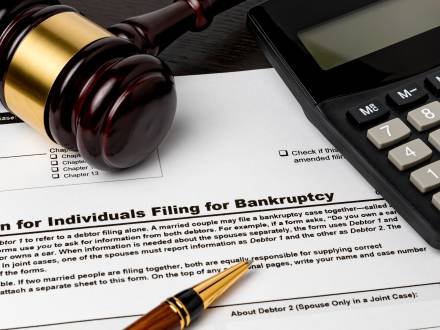 Filing for Chapter 13 bankruptcy allows you to manage your debts through a structured repayment plan. This process can provide relief if you want to reorganize your finances without liquidating assets. It can be helpful to know how this repayment plan operates.
Filing for Chapter 13 bankruptcy allows you to manage your debts through a structured repayment plan. This process can provide relief if you want to reorganize your finances without liquidating assets. It can be helpful to know how this repayment plan operates.
Understanding the basics of the Chapter 13 repayment plan
When you file for Chapter 13 bankruptcy, you suggest a plan to repay all or at least a portion of your debts over three to five years. The duration of your plan depends on your average monthly income relative to the median income. You'll likely qualify for a three-year plan if your income is below the median. If it's above, a five-year plan is more typical.
Determining your payment amount
Your monthly payment under a Chapter 13 plan depends on several factors, including your disposable income, total debt, and necessary living expenses. To calculate your disposable income, subtract these expenses from your monthly income. The remaining amount represents what you can reasonably afford to pay toward your debts.
Are student loans forgiven after 10 years?
 Student loans can be a significant financial burden for borrowers. Many people wonder about the possibility of forgiveness after 10 years. Specific programs and conditions determine if you are eligible for student loan forgiveness.
Student loans can be a significant financial burden for borrowers. Many people wonder about the possibility of forgiveness after 10 years. Specific programs and conditions determine if you are eligible for student loan forgiveness.
Public service loan forgiveness
There are federal student loan forgiveness programs that can provide relief for borrowers. The Public Service Loan Forgiveness (PSLF) program is a notable option. Under this program the remaining balance on your direct loans can be forgiven after making 120 monthly payments while working full-time for a qualifying employer.
If you meet the criteria, you will receive forgiveness after 10 years of consistent payments. You must meet all the requirements and submit the necessary documentation during the process.
Income-driven repayment plans
If your initial loan balance is less than $12,000, you might qualify for forgiveness under the SAVE plan. This plan adjusts your monthly payments based on your income. This makes it easier to manage payments if you are facing financial hardship. This is an alternative path to forgiveness over a longer period, typically 20 to 25 years.






